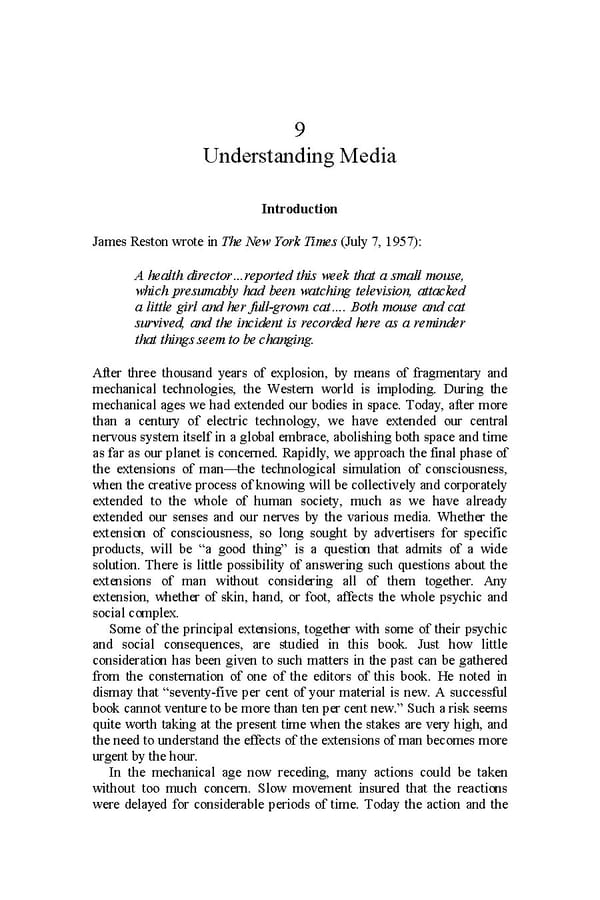9 Understanding Media Introduction James Reston wrote in The New York Times (July 7, 1957): A health director…reported this week that a small mouse, which presumably had been watching television, attacked a little girl and her full-grown cat…. Both mouse and cat survived, and the incident is recorded here as a reminder that things seem to be changing. After three thousand years of explosion, by means of fragmentary and mechanical technologies, the Western world is imploding. During the mechanical ages we had extended our bodies in space. Today, after more than a century of electric technology, we have extended our central nervous system itself in a global embrace, abolishing both space and time as far as our planet is concerned. Rapidly, we approach the final phase of the extensions of man—the technological simulation of consciousness, when the creative process of knowing will be collectively and corporately extended to the whole of human society, much as we have already extended our senses and our nerves by the various media. Whether the extension of consciousness, so long sought by advertisers for specific products, will be “a good thing” is a question that admits of a wide solution. There is little possibility of answering such questions about the extensions of man without considering all of them together. Any extension, whether of skin, hand, or foot, affects the whole psychic and social complex. Some of the principal extensions, together with some of their psychic and social consequences, are studied in this book. Just how little consideration has been given to such matters in the past can be gathered from the consternation of one of the editors of this book. He noted in dismay that “seventy-five per cent of your material is new. A successful book cannot venture to be more than ten per cent new.” Such a risk seems quite worth taking at the present time when the stakes are very high, and the need to understand the effects of the extensions of man becomes more urgent by the hour. In the mechanical age now receding, many actions could be taken without too much concern. Slow movement insured that the reactions were delayed for considerable periods of time. Today the action and the
 Essential McLuhan Page 152 Page 154
Essential McLuhan Page 152 Page 154